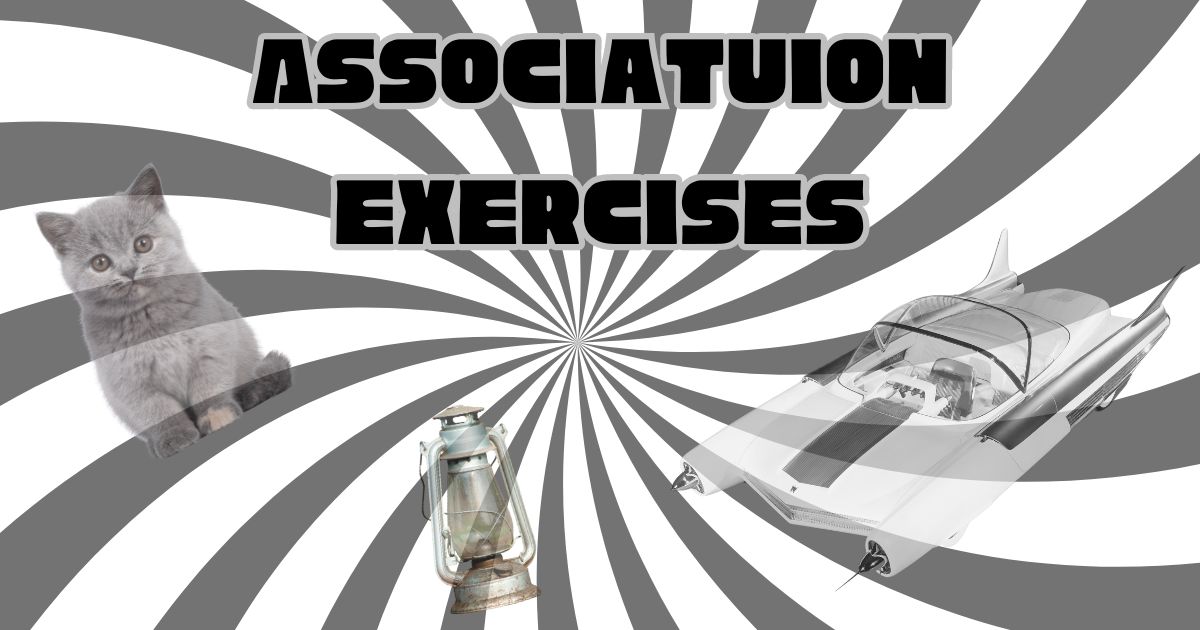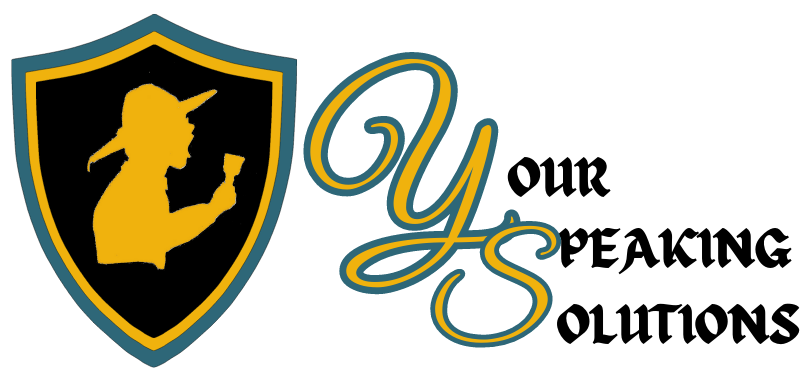Think Faster and Respond Smarter with Association Exercises

Do you struggle with impromptu speaking? Would you like to drastically improve your impromptu speaking abilities? If you practice association exercises for less than 5 minutes a day over the next 30 days you’ll find yourself thinking faster and responding smarter in your next impromptu speaking situation.
Struggles with impromptu speaking
Do you wonder what you will say when asked to give your thoughts or answer a question? The anxiety from the uncertainty of impromptu speaking can make your mind tight, your body tight, and your lips tight with tension.
You may have thought, ‘What am I going to say?’ ‘Am I going to have a response?’ ‘Can I get the words from my mind to my mouth?’ ‘Will I make any sense?’
Solution with Association Exercises
Association exercises help eliminate the problems mentioned above. Association exercises loosen up your mind and lubricate your mental gears to get your mental motor running. This means you can generate ideas faster. You'll be able to make connections with your thoughts and most importantly, you're going to think faster, so you can respond faster in the moment with your impromptu speaking.
Practice these two exercises and you will improve your impromptu speaking abilities.
Association Exercise Basics
You can practice these warm up exercises anywhere. You will make progress with your abilities by practicing five minutes a day. If you are new to association exercises let your environment inspire what you will say. Pick a random word or concept from something you notice in your environment. A practice partner can give you a starting word also.
Make sure to say the observation and the responses aloud. Associate a minimum of 6 things. As you get more experienced you can increase the amount of things you associate.
When you finish one association, choose another random word/ concept and continue the association exercise for 2 minutes.
Exercise #1: Free Association
My definition of free association is one thing makes you think of a related thing. As you keep generating ideas, each new idea is based on (A) the original idea or (B) previous idea. You will make obvious connections with free association.
In free association the key is everything you say has an obvious connection with each other.
Here is an example of free association off an original idea. You see a painting of a barn which is the original idea and start to associate: barn, straw, pitchfork, tractor, hayloft, chicken coop, cows, grain silo.
When associating off an original idea everything you say goes back to the original idea. Notice how everything that follows the word barn is associated with barns.
Here is an example of free association off of the previous idea. You see a painting of a barn and start to associate: barn, pasture, cows, supermarket, steaks, grilling, dinner.
When associating off the previous idea, what you say has a logical flow to what you previously said. Notice how you can follow the progression from barn to dinner. Barns have pastures. Pastures have cows. Cows end up at the supermarket. Supermarkets sell steaks. Steaks can be grilled. Grilled steaks become dinner.
Tips for Success
Trust your intuition
When doing free association exercises go with the first response your mind thinks of. This creative spark gets you started. Then keep talking.
Rely on momentum
The more words you say and the more ideas you get, the easier the exercise can become. Much like riding a bike, the first pedal rotations are the hardest. As you gain momentum the pedaling becomes easier.
In free association, the more words you say the more connections you will find with those words.
Work on getting your responses said more quickly. For example, if you’re starting observation is guitar you want to say: Guitar, pick . . . amp . . . solo . . . rather than Guitar, pick . . . . . . . amp . . . . . . . solo . . . . . . .
Brainstorm basics
View association exercises as a brainstorm. You want to loosen up your mind and get comfortable talking as you generate ideas. The key rule of brainstorming is creating ideas in a judgment and criticism free space. Your goal with association is to produce ideas NOT judge or criticize your ideas.
Begin with knowledge
When you first try association exercises gather your ideas from what you know. A position of knowledge will provide more ideas than a position of ignorance. Pick something that you have some knowledge about.
For example if you’re knowledgeable on cars, a free association of cars will generate more ideas than if you pick submarines and have minimal knowledge about submarines.
Gain confidence first with free association exercises before moving on to free dissociation exercises.
Exercise #2: Free Disassociation
My definition of free dissociation is one thing inspires you to say a completely unrelated thing. And each new idea that you're developing is different from (A) the original idea or (B) the previous idea.
What you say has a less obvious flow and connection when compared to free association. Although free dissociation appears random, you are making connections between each idea.
Here is an example of free disassociation off the original idea. You’re starting idea is crab. Crab makes you think fire truck, stop sign, spiders, lobsters, salad tongs, artillery shell.
Free dissociation isn’t random without connection. Each word is inspired by the original idea. Let’s review the example above to see the connection.
Crab makes you think of a fire truck which is red like a crab. Stop signs are also red like crabs. Spiders have many legs like crabs. Lobsters are crustaceans like crabs. Salad tongs grab much like crab pincers. Artillery shell has a shell and crabs also have a shell.
Here is an example of free disassociation off the previous idea. Your starting idea is crab. Crab makes you think backhoe, chiropractor, scientist, periodic table, billiards ball, Cyclops.
Free dissociation isn’t random without connection. Here is how the random words connect. Each word has a slight connection. The inspiration is the connection between words. Let’s review the example above.
Crab makes you think of claw which makes you think of a construction excavating backhoe. Back makes you think of chiropractor. Chiropractor makes you think a white medical coat. A white medical coat made you think of scientists. Scientists make you think of the periodic table. The periodic table makes you think of billiard balls on a pool table. Finally billiard balls make you think of a large eye on the mythological creature, the Cyclops.
Tips for Success
Respond with curiosity
Most people’s first reaction is to respond with cluelessness with, ‘I don’t know what to say’ or ‘I don’t know what this means’. If you act clueless you cut off any creative exploration.
Instead curiosity allows for playful exploration. When you say a word your mind says, ‘I wonder where I can go with this. Let me find out’.
Believe in your ability to find connections
An ‘I cannot’ attitude cuts connections, whereas an ‘I can’ attitude finds connections.
Think like an artist not a mathematician
Avoid thinking in terms of the right response such as a mathematician where 2+A=4 where the right response is A=2. Instead think like an artist with a blank canvas and a palette of colors. Much like you can paint anything, you can say anything with association.
The Main Goal of Association
Making connections in free association and free disassociation exercises allows you to work on developing the skill of justification.
Justification is the rationale, the logic, and the reasons to keep talking. Developing this skill is like giving yourself custom jigsaw puzzle pieces, because you can make what you are saying fit. Justification helps you tie together ideas quickly to make sense of what you say.
Practice five minutes a day and you will be a drastically better impromptu speaker in the next month. That’s my special challenge for you.
Other impromptu speaking exercises:
Always Have Something to Say: Respond Faster Exercise
What would you like to improve about your impromptu speaking abilities? Contact Nate
